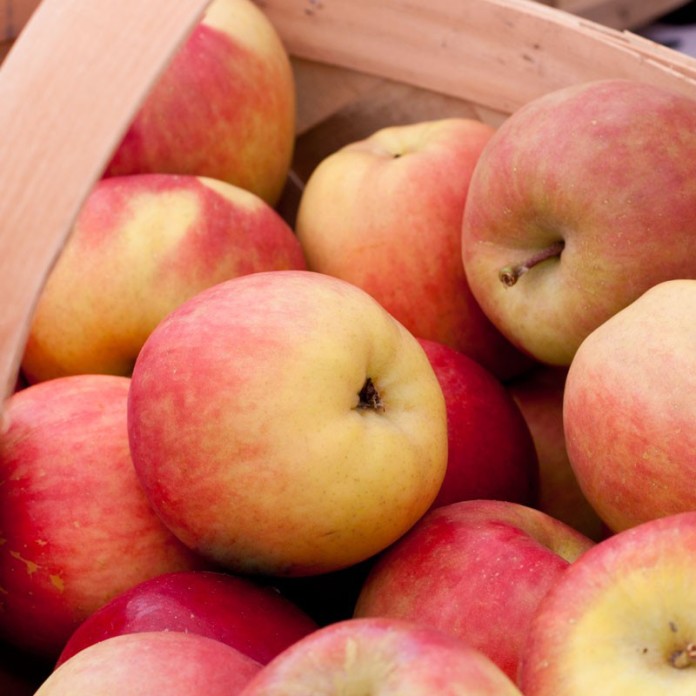Today we live in a world of hard choices as consumers. One thing is for certain, being healthy isn’t cheap, and cheap food usually isn’t healthy. Many of us juggle going between higher-end markets that carry organic/natural products, mid-priced choices like Trader Joe’s, and the cheaper large local supermarkets. We juggle, and we make hard choices that often must leverage budget and heart. If money were not an object, most health-conscious folks would fill up the cart at Whole Foods and call it a day. But, with the budget in mind, we have to ask ourselves which organic/healthy products will have a significant impact on our health?
Several years ago I ran across “The Dirty Dozen“, a popular list put out by the Environment Working Group, EWG. The Dirty Dozen is a list of, you guessed it, twelve fruits and vegetables that contain the most dangerous residues from the chemicals used to grow them. This isn’t at all a list of foods to avoid, on the contrary, all of the foods that are on the list are great for your health, but these are fruits and vegetables that should be more diligently sourced and, when possible, used as a stimulus to buy organic.

Where to begin? Let’s start with the most notorious numero uno fruit/vegetable on the the Dirty Dozen: apples. Extensive research done by PAN, the Pesticide Action Network, has found 47 different pesticides on apples. Over 80% of apples contain at least one probable or known carcinogen, with 18 likely or known carcinogens being used on apples consumed in the U.S. The list of pesticides containing hormone disrupters, neurotoxins, and developmental and reproductive toxins that are especially harmful to children is too long to list in one blog, and the bottom line is: washing an apple before you eat it just isn’t going to cut the mustard.
So, stop eating apples? Heck no! Apples are kids favorites for a reason, they are delicious, and extremely healthy too. In fact, apples and apple juice make up 30% of the total fruit intake of American kids, says Kirsten Herrick, a senior service fellow with the U.S. National Center for Health Statistics. Apples are a key source antioxidants, flavonoids, and dietary fiber. The phytonutrients and antioxidants in apples are linked to reducing the risk of developing cancer, hypertension, diabetes, and heart disease.
 One apple is equal to a whole cup of fruit, putting you well into meeting your needs for your daily fruit intake. Apples are also high in antioxidants and pectin, a fiber, that may be one of the reasons that various studies have found that apples are a fantastic contributor to weight loss. Apples have been found to a be a warrior in the fight against cancer with new studies showing evidence of being useful tools in staving off colon, breast, and lung cancers. Not sold yet? Apples can also decrease the risk of asthma and contain an amazing variety of polyphenols which help the skin resist the harmful effects of UV on the skin.
One apple is equal to a whole cup of fruit, putting you well into meeting your needs for your daily fruit intake. Apples are also high in antioxidants and pectin, a fiber, that may be one of the reasons that various studies have found that apples are a fantastic contributor to weight loss. Apples have been found to a be a warrior in the fight against cancer with new studies showing evidence of being useful tools in staving off colon, breast, and lung cancers. Not sold yet? Apples can also decrease the risk of asthma and contain an amazing variety of polyphenols which help the skin resist the harmful effects of UV on the skin.
So when they say, “An apple a day keeps the doctor away”, there is certainly some merit to it! When you look at the bad, and the good, that apples have to offer, all signs point towards eating plenty of apples- and buying organic. When examining this week’s USDA report on the retail prices for fruits and vegetables, most apples are just under $2 per pound. I find that in the Boston area organic apples range from $2.99 to $3.99 per pound. Yes, the difference is substantial, but I like to not think about how cheap the carcinogen-laced Big Food apples are, but rather how much goodness and nutrition I am getting for $2.99 when I buy a pound of organic apples.
 Anyone who says they taste the same hasn’t spent a week of having a delicious organic apple every day. After a couple of weeks of eating organic apples, not only will you love them, but you will never be able to touch a residue covered chemically-shined apple again. I hope the next time you are in the market you make the plunge and join me in the food porn that goes on every time I bite into one of these tasty treats. Vote with your wallet: organic apples, they’re worth it.
Anyone who says they taste the same hasn’t spent a week of having a delicious organic apple every day. After a couple of weeks of eating organic apples, not only will you love them, but you will never be able to touch a residue covered chemically-shined apple again. I hope the next time you are in the market you make the plunge and join me in the food porn that goes on every time I bite into one of these tasty treats. Vote with your wallet: organic apples, they’re worth it.



